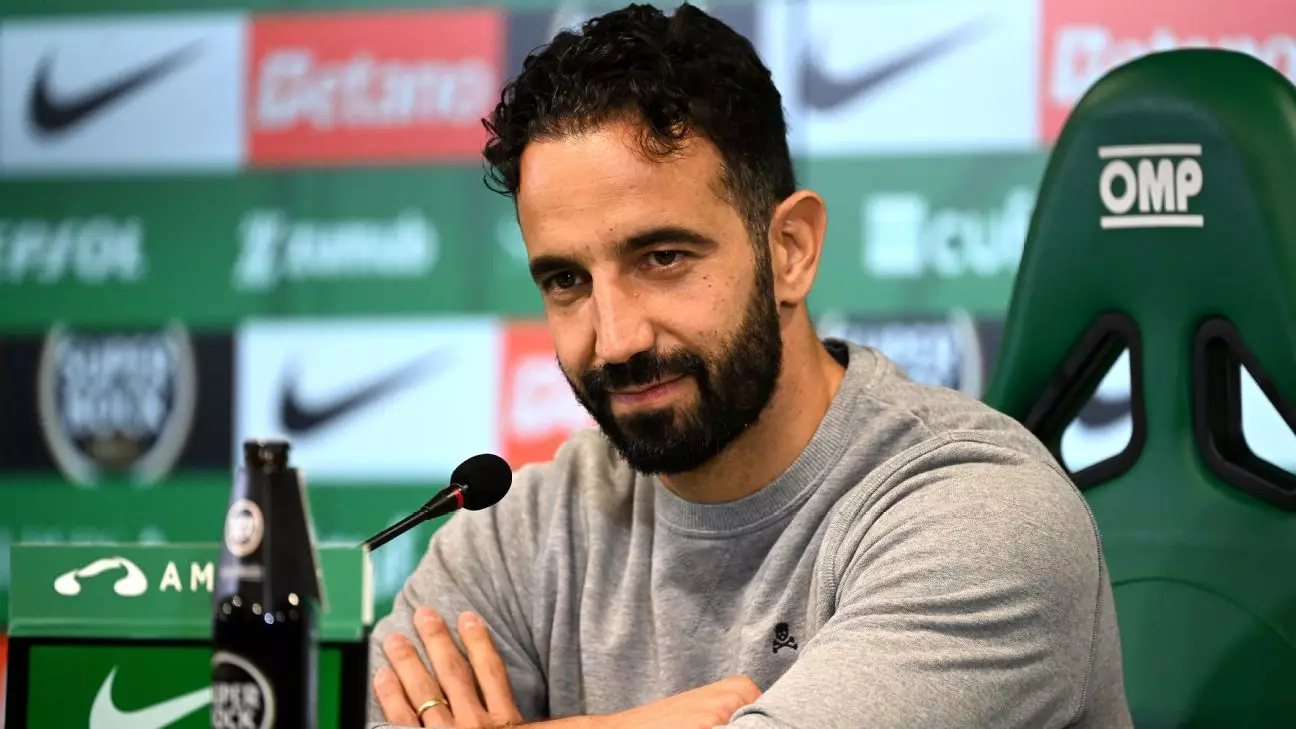Manchester United’s decision to bring Rúben Amorim on board as head coach marks a significant shift in the club’s strategic direction. Signing a two-and-a-half-year contract, Amorim will officially take the reins starting November 11, following his tenure at Sporting CP. This transition presents not just an opportunity for rejuvenation on the field but also a pivotal moment for contract negotiations with several players whose futures at Old Trafford hang in the balance.
As the summer transfer window fades, Manchester United faces an urgent need to assess its squad, particularly players nearing the end of their contracts, such as Victor Lindelöf and Christian Eriksen. Reports suggest that Amorim will be given the responsibility to evaluate these players, albeit within a more structured framework than his predecessor, Erik ten Hag. It seems paramount that Amorim’s thoughts will play a role in deciding which players remain, as the club’s higher management, led by CEO Omar Berrada alongside sporting director Dan Ashworth and technical director Jason Wilcox, will ultimately make the final call.
Systematic Changes on the Horizon
A more pressing concern for United is how Amorim’s preferred tactical system—3-4-3—will affect the existing squad dynamics. The adaptation to a new formation could favor players like Harry Maguire, who has experience playing in similar defensive setups. Despite his struggles under Ten Hag, Maguire’s skill set may align well with Amorim’s vision, thus providing him a potential platform to regain his standing in the squad.
Conversely, players who cannot quickly adapt to this tactical shift might find themselves at risk. For example, Lindelöf faced potential transfers this past summer, only for an injury to thwart those plans. With his fitness restored and a pre-existing connection with Amorim from their Benfica days, Lindelöf must showcase his capabilities anew in a formation that may well rely on his strengths as a central defender.
Beyond immediate tactical adjustments, Manchester United’s impending contract decisions add layers of complexity to the handover of power to Amorim. Players like Amad Diallo and Eriksen are also in precarious positions heading into the season’s conclusion. The club holds extension options until 2026, and these clauses might tip the scale depending on Amorim’s assessments and the club’s broader financial strategy moving forward.
As January approaches, Lindelöf’s position becomes even more precarious; with him eligible to speak with foreign clubs, speculation around a move to Fenerbahçe looms. The nature of such negotiations may shift depending on how successful Amorim’s adjustment to the squad proves to be.
Amorim’s appointment ushers in not just a new tactical landscape for Manchester United, but also an intricate dance of contract negotiations and player evaluations. The decisions made in the coming weeks will significantly impact the club’s direction as they look to rebuild and redefine their identity in the competitive landscape of football. In a league that demands adaptability and resilience, how effectively Amorim guides this transition remains the central story for Manchester United in the near future.
